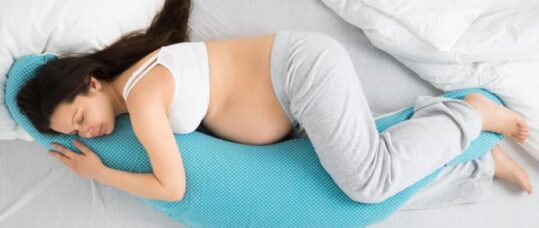Sleeping on your back during pregnancy increases risk of stillbirth

Women who sleep on their back during late-term pregnancy are at increased risk of delivering a stillborn baby, new research has confirmed.
The research, published in The Journal of Physiology, advised nurses and midwives to continue current practice, and recommend that expectant mothers sleep on their side after 28 weeks gestation to allow the foetus to move more.
Related Article: One in five appointments in general practice completed by a nurse
The foetus was 73% less likely to be actively awake – a state where the baby moves the most – than actively sleeping in mothers who slept on their back.
This is the first study to monitor unborn babies overnight and at the same time record the mother’s position during sleep. It involved 30 healthy, pregnant women at 34-38 weeks gestation, all with healthy babies.
Related Article: Nurses joining NMC register later than before
The researchers from the University of Auckland set up infrared video cameras to record the mothers’ positions as they slept. They also continuously recorded the heart rate of the women and foetus overnight using foetal ECG.
The researchers said: ‘Foetuses were only in an active state when the mother was on her left or right side. When the mother changed position during sleep, for example from her left side to sleeping on her back, the baby quickly changed activity state and became quiet or still.’
Peter Stone, obestetrician at the university and one of the lead investigators on the study, said: ‘In the situation where the baby may not be healthy, such as those with poor growth, the baby may not tolerate the effect of maternal back sleeping.
Related Article: Nurse pay over £8k lower due to decade of pay cuts, RCN suggests
‘We are suggesting that there is now sufficient evidence to recommend mothers avoid sleeping on their back in late pregnancy, not only because of the epidemiological data but also because we have shown it has a clear effect on the baby.’

See how our symptom tool can help you make better sense of patient presentations
Click here to search a symptom


Women who sleep on their back during late-term pregnancy are at increased risk of delivering a stillborn baby, new research has confirmed.



